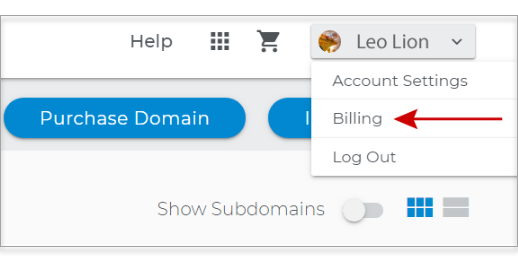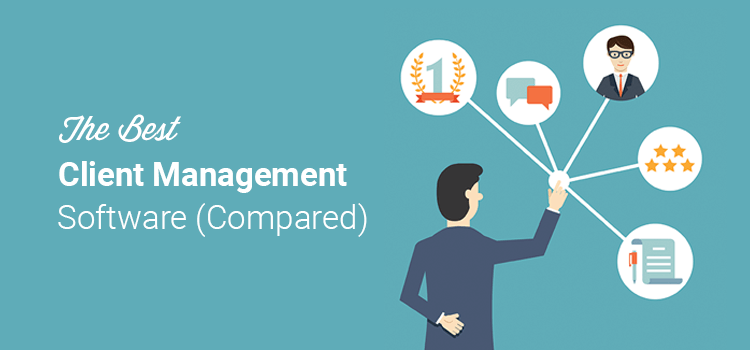In today’s fast-paced online environment, having a reliable hosting solution is crucial for WordPress website owners. The best cloud hosting for WordPress ensures that your site remains accessible, fast, and secure, even as your traffic fluctuates. This guide will explore the benefits of cloud hosting, highlight top providers, and offer tips on optimizing your WordPress site for success.
Toc
- 1. Understanding WordPress Cloud Hosting
- 2. Top Cloud Hosting Providers for WordPress: Finding the Best Cloud Hosting for WordPress
- 3. Choosing the Right Cloud Hosting for Your WordPress Website
- 4. Related articles 01:
- 5. Related articles 02:
- 6. Optimizing Your WordPress Website on Cloud Hosting
- 7. Frequently Asked Questions (FAQ)
- 8. Conclusion
Understanding WordPress Cloud Hosting

Cloud hosting is a modern hosting solution that leverages a network of remote servers to store and manage your website’s data. Unlike traditional hosting options such as shared or VPS hosting, cloud hosting provides a virtually unlimited pool of resources, enabling your website to scale seamlessly as your business grows.
What is Cloud Hosting for WordPress
Cloud hosting for WordPress specifically optimizes the traditional cloud infrastructure to meet the unique needs of WordPress users. This tailored approach often includes pre-installed WordPress, automatic updates, and a user-friendly interface for managing site configurations. One of the key advantages of using cloud hosting for WordPress is its ability to handle traffic spikes and high volumes of visitors without sacrificing performance. By distributing data across multiple servers, cloud hosting minimizes the risk of downtime and ensures quick loading times, which is essential for maintaining SEO rankings and providing a positive user experience. In addition, cloud hosting typically offers advanced security features such as DDoS protection, SSL certification, and regular backups, which further safeguards your site from potential threats.
Advantages of Cloud Hosting for WordPress
- Scalability: One of the most significant advantages of the best cloud hosting for WordPress is its ability to scale resources up or down based on your website’s traffic. For example, a small e-commerce store might start with a basic cloud hosting plan. However, during peak shopping seasons like Black Friday or Cyber Monday, they can easily scale up their resources to handle increased traffic and ensure a smooth shopping experience for customers.
- Reliability: Cloud hosting offers enhanced reliability due to its distributed nature. Your website’s data is stored across multiple servers, reducing the risk of downtime caused by server outages. Cloud hosting providers like Pressable utilize redundant systems and multiple data centers, ensuring that even if one server fails, another takes over seamlessly. This redundancy minimizes downtime and guarantees website availability for users.
- Security: Security is paramount for any website. Cloud hosting providers often implement advanced security measures, including firewalls, malware protection, and regular backups. Many providers also offer features like two-factor authentication, automatic malware scanning, and regular security updates. This multi-layered security approach helps safeguard your WordPress site from potential threats like brute-force attacks and data breaches.
- Performance: With cloud hosting, you can expect faster loading times and improved user experiences. The use of Content Delivery Networks (CDNs) and SSD storage ensures that your website runs smoothly, even under heavy traffic. During peak periods, such as holiday sales or product launches, your website can effortlessly handle surges in traffic without compromising performance, ensuring a smooth and enjoyable user experience.
- Managed WordPress Hosting: Many cloud hosting providers offer managed WordPress hosting, which includes automatic updates, daily backups, and expert support tailored specifically for WordPress sites. This convenience allows you to focus on content creation rather than technical maintenance.
Top Cloud Hosting Providers for WordPress: Finding the Best Cloud Hosting for WordPress

When searching for the best cloud hosting for WordPress, several providers stand out due to their features, performance, and support. Here are some top options to consider:
Pressable
Pressable is a top-tier WordPress cloud hosting provider known for its robust infrastructure and exceptional customer support. With a commitment to 100% uptime and an automatic failover system, Pressable ensures your website remains online during any server disruptions. They offer various plans suitable for businesses of all sizes, making it an excellent choice for those seeking reliability and performance.
Kinsta
Kinsta is synonymous with speed and efficiency. Their high-performance cloud hosting platform utilizes Google Cloud’s infrastructure, offering lightning-fast loading times and unparalleled performance. Kinsta also provides managed WordPress hosting, ensuring that your site is regularly updated and secure. Their user-friendly dashboard and expert support make it easy to manage your website effectively.
WP Engine
WP Engine is a well-established player in the managed WordPress hosting market. They provide a comprehensive suite of features, including automatic backups, staging environments, and a global data center network. WP Engine’s focus on performance and security makes it a top choice for businesses looking to enhance their WordPress sites.
DreamHost
DreamHost’s managed WordPress cloud hosting plans simplify website management. With features like automatic updates, staging environments, and pre-installed security plugins, DreamHost allows you to concentrate on growing your online presence. Their commitment to customer support ensures you have assistance whenever needed.
Scala Hosting
Scala Hosting is recognized for its user-friendly SPanel control panel, making it easy to manage your WordPress sites. They offer a variety of affordable cloud hosting plans that include features like free SSL certificates and LiteSpeed caching. Scala Hosting’s scalable infrastructure makes it an ideal choice for businesses looking to expand their online footprint.
SiteGround
SiteGround is known for its exceptional customer service and performance. They provide managed WordPress hosting with features like automatic updates, daily backups, and advanced caching. SiteGround’s commitment to security and performance makes it a reliable choice for website owners.
Cloudways
Cloudways offers a unique approach to cloud hosting by providing managed services on top of major cloud infrastructure providers like AWS, Google Cloud, and DigitalOcean. This flexibility allows you to choose the best cloud environment for your WordPress site while benefiting from their expert support and optimization tools.
Choosing the Right Cloud Hosting for Your WordPress Website

Selecting the best cloud hosting for WordPress involves considering several key factors:
1- Website Traffic
When evaluating cloud hosting providers, it’s crucial to consider the expected traffic your WordPress website will receive. Websites with high traffic volumes require scalable hosting solutions that can accommodate sudden surges without performance degradation. Providers such as Kinsta and Cloudways excel in offering flexible plans that adjust resources based on real-time traffic demands, ensuring your site remains responsive and efficient regardless of user load. Additionally, understanding your audience and their geographical distribution can guide the choice of a provider with data centers strategically positioned around the globe, thereby reducing latency and improving load times for your users.
2- Scalability
Scalability is an essential feature for any cloud hosting provider when catering to dynamic website demands. As your WordPress website grows, or during times of high demand, the hosting service should seamlessly scale resources like CPU, RAM, and storage. This adaptability prevents potential downtime and ensures consistent performance. Providers such as AWS and Cloudways offer robust scalability options, allowing businesses to scale vertically by increasing server capabilities or horizontally by adding more servers. Choosing a hosting provider with ensured scalability guarantees that your WordPress site can effortlessly handle increased traffic while maintaining speed and reliability.
3- Security
Prioritize providers that offer robust security features, such as firewalls, malware protection, and SSL certificates, to protect your website and customer data. While cloud hosting providers offer robust security features, it’s crucial to remember that website security is a shared responsibility. Website owners must implement best practices like strong passwords, regular backups, and keeping their WordPress installations updated to ensure comprehensive protection.
4- Support
Reliable customer support can significantly impact your website’s success. Choose a provider known for responsive and knowledgeable support.
5- Budget
Balance features and pricing to find the cloud hosting solution that offers the best value for your business. Look for providers that offer transparent pricing with no hidden fees.
Decision Matrix
|
Criteria |
Pressable |
Kinsta |
WP Engine |
DreamHost |
Scala Hosting
|
SiteGround |
Cloudways |
|---|---|---|---|---|---|---|---|
|
Scalability |
Yes |
Yes |
Yes |
Yes |
Yes |
Yes |
Yes |
|
Security |
High |
High |
High |
Moderate |
Moderate |
High |
High |
|
Support |
24/7 |
24/7 |
24/7 |
24/7 |
24/7 |
24/7 |
24/7 |
|
Pricing
|
Moderate |
High |
High |
Low |
Low |
Moderate |
Moderate |
Optimizing Your WordPress Website on Cloud Hosting

To maximize the performance of your WordPress website on cloud hosting, consider implementing the following strategies:
1- Caching
Implementing effective caching strategies is crucial for enhancing the speed and efficiency of your WordPress website on cloud hosting. By storing static versions of your site’s pages, caching reduces the load on your server and significantly accelerates page load times for your visitors. There are several caching options you can use, including browser caching, which allows users to load previously downloaded resources from their local device rather than your server, and server caching, where frequently requested data is stored in a temporary storage area for quick retrieval. Additionally, using a performance-optimized WordPress caching plugin like W3 Total Cache or WP Rocket can further streamline your website’s performance, ensuring that your visitors experience fast and seamless navigation. Implementing caching not only boosts speed but also optimizes resource usage, making your website more reliable during traffic spikes.
2- Image Optimization
Optimizing images is an essential step in enhancing the overall performance of your WordPress website on cloud hosting. Large, unoptimized images can significantly slow down your site’s load time, leading to a poor user experience and potentially impacting your site’s search engine ranking. To achieve optimal image optimization, use tools and plugins like Smush or Imagify, which compress images without sacrificing quality. Additionally, it’s advisable to choose the appropriate image format—JPEGs for photographs and PNGs for graphics with transparent backgrounds. Implementing lazy loading is another effective strategy; this function ensures images are only loaded when they enter the viewport, thus reducing the initial page load time and conserving bandwidth. By integrating these image optimization techniques, you can ensure your WordPress website remains fast, efficient, and user-friendly on cloud hosting platforms.
3- Content Delivery Network (CDN)
A Content Delivery Network (CDN) is a critical component in optimizing your WordPress website’s performance on cloud hosting. By distributing copies of your website’s static content across a global network of servers, a CDN reduces latency and accelerates load times, especially for users geographically distant from the primary server. This improved efficiency is achieved as the CDN delivers content from the server closest to the end-user, significantly boosting speed and reliability. Setting up a CDN with providers like Cloudflare or Amazon CloudFront is straightforward and provides robust features such as DDoS protection and analytics. Incorporating a CDN not only enhances the speed and security of your site but also helps it withstand high traffic volumes, ensuring a seamless and engaging user experience regardless of global location.
4- Regular Updates
Regular updates are vital for maintaining the health and security of your WordPress website on cloud hosting. Keeping your WordPress core, themes, and plugins consistently updated ensures access to the latest features, bug fixes, and security patches, thus reducing the risk of vulnerabilities and performance issues. Automatic updates can be enabled for the WordPress core, but it’s also crucial to regularly check and manually update plugins and themes to ensure full compatibility with the latest WordPress version. Additionally, consider setting up a staging site where you can test updates before applying them to your live site. This precaution helps to prevent any compatibility issues that might disrupt the functionality of your website. By committing to regular updates, your WordPress site will remain stable, secure, and optimized for performance in the cloud hosting environment.
Frequently Asked Questions (FAQ)

Q: What are the main differences between cloud hosting and traditional hosting for WordPress?
A: Cloud hosting offers greater reliability and scalability, distributing data across multiple servers. Traditional hosting often relies on a single server, which can lead to downtime.
Q: How do I choose the best cloud hosting provider for my WordPress website?
A: Consider factors such as traffic, scalability, security, support, and budget. Evaluate different providers based on these criteria to find the right fit for your needs.
Q: What are the essential security features to look for in a cloud hosting provider?
A: Look for features like firewalls, DDoS protection, malware scanning, and automatic backups to ensure your website is well-protected.
Q: How can I improve my WordPress website’s performance on cloud hosting?
A: Implement caching, optimize images, use a CDN, and keep your site updated to enhance performance.
Q: What are the common mistakes to avoid when choosing a cloud hosting provider?
A: Avoid providers with hidden fees, inadequate support, and limited scalability options. Research reviews and testimonials to make an informed decision.
Conclusion
In 2024, selecting the best cloud hosting for WordPress is more crucial than ever. With the right provider, you can enjoy the benefits of improved performance, security, and scalability for your website. Remember to evaluate your specific needs, consider the factors discussed, and take advantage of the top cloud hosting options available.
Whether you’re a small business or a growing enterprise, investing in the best cloud hosting for WordPress can set you up for long-term success. Start your search today and unlock the full potential of your online presence!










